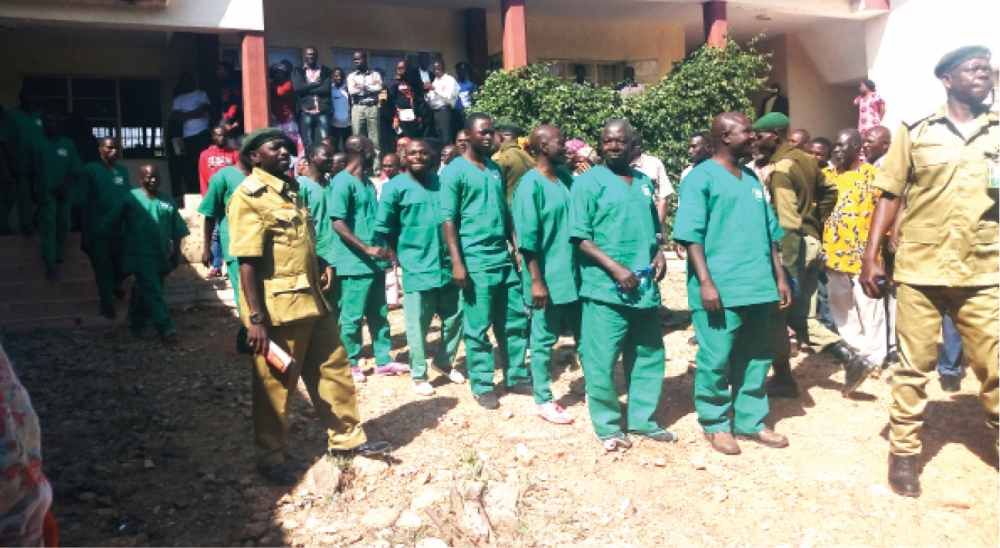The Court of Appeal, Benin Division last week ruled that Nigerian prisoners have the right to vote in an election. The ruling was granted in favour of the prayers by five inmates seeking an order to compel the Independent Electoral Commission [INEC] to provide for all prisoners in Nigeria enlistment in the voters’ register and full opportunity to vote in the forthcoming 2019 polls. The judgement affirmed an earlier 2014 judgement that prisoners in Nigeria can vote in an election. However, Justice S. Oseji who delivered the judgement did not order INEC to liaise with the Nigeria Prisons Service to provide polling centres inside the country’s prisons as prayed for by the appellants.
Speaking after the judgement, counsel to the appellants Mr. Aigbokhan, who is also the President of the Initiative for Rural Development Information and Legal Advocacy, said the intention of his clients is to appeal aspects of the judgement which may include the order on INEC to provide polling booths in prisons. According to him, “Prison inmates have communities. Polling units should be located there. We believe they have a right to vote in an election so as to determine those who ultimately decide their future.”
Be that as it may, the judgment, along with the issues around it, has raised more questions than answers, especially with respect to the logistic challenges which have suddenly emerged for INEC. First is the issue of complying with the court order on including prisoners in the voters’ register. From all indications prisoners are not in the voters’ register and INEC has also closed registration of new voters. It needs time to prepare a clean voters’ register for the upcoming elections. In so far as this ruling was made by a high court four years ago, provision should have been made for prisoners to enjoy voting rights.
The debate over prisoners’ voting rights has engaged various countries’ criminal justice systems for a long time. The common question has been, which rights do prisoners forfeit legally when in incarceration? It borders on the circumstances of felony, disenfranchisement being the exclusion from voting of people otherwise eligible to vote, due to conviction on a criminal offence. In the Nigerian context the two judgments namely of a High Court in 2014 and the recent one by the Appeal Court, Benin Division have put paid to whatever controversy there may exist in this regard. Placing the matter in context, even INEC’s eligibility criteria for voting did not include prison incarceration as a condition for exclusion. The exclusion covers only those under the age of 18, non-Nigerians, those who did not register as voters, those who do not hold a voter’s card and those whose names are not in the voters’ register.
Unless this ruling is overturned by the Supreme Court, prisoners in Nigeria must henceforth be able to exercise their right to vote and the necessary arrangements must be made to register them, provide polling stations near prisons or transport prisoners to polling stations. This, however, cannot be done in the upcoming 2019 elections because the processes are already advanced. INEC should however start planning for the post 2019 election period.
A useful way to start is to begin to educate prison inmates on the various processes involved in making them participate actively. Nigeria has 240 prisons, out of which 155 are for convicts and 83 are satellite facilities. Going forward, arrangements have to be made regarding how prisoners can vote in elections, not the least being the security issues involved. Another important factor is how to facilitate an interface between prison inmates and political parties/candidates. In the absence of such, prisoners would as well be voting blind.
This ruling of the Appeal Court might have made life even more challenging for INEC and its officials. It is however an important interpretation of the meaning of incarceration, and just which constitutional rights a convicted felon must forfeit. Preparations should be made to actualise it.




